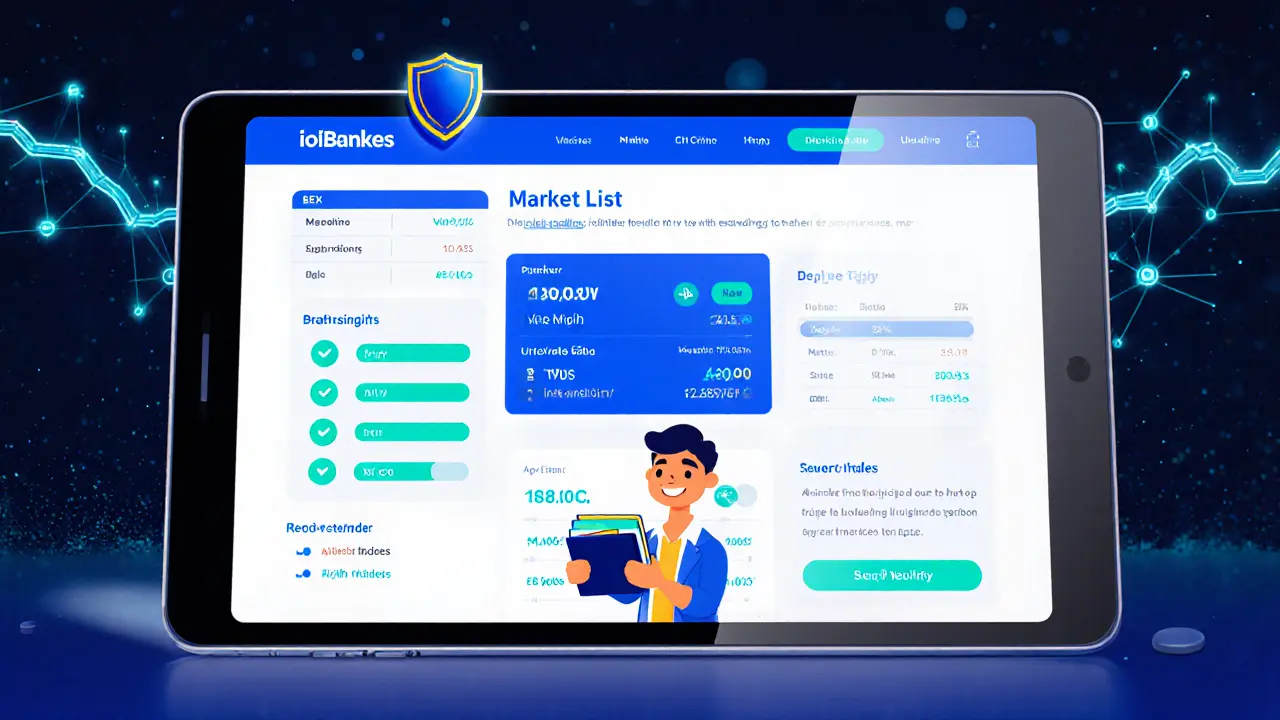BitShares DEX: How It Works, Risks & Latest Reviews
When you start looking at BitShares DEX, a peer‑to‑peer trading platform built on the BitShares blockchain that lets anyone swap assets without a central custodian. Also called BitShares Decentralized Exchange, it offers a transparent order‑book, instant settlement and some of the lowest fees in crypto. Decentralized Exchange, a system where trades happen on‑chain rather than through a middle‑man is the broader category that BitShares DEX belongs to. Within this ecosystem, SmartCoin, a token that tracks an external asset like USD or gold on the BitShares network plays a key role, giving users stable‑value options. Finally, Atomic Swaps, trustless cross‑chain exchanges that happen without an intermediary are supported, making it easier to move value between different blockchains.
In practice, BitShares DEX enables users to place limit orders on a public order‑book that matches buy and sell requests automatically. This means you don’t need to trust a third party with your funds – the blockchain enforces the trade. The platform also offers built‑in market‑making tools, so liquidity providers can earn fees while keeping spreads tight. Because the network runs on delegated proof‑of‑stake, transaction confirmation is fast and costs stay under a cent. Those features combine to create a system where decentralized exchange requires no custodial wallet and smartcoins provide price stability within a volatile market. If you compare it to centralized services, you’ll notice that BitShares DEX reduces counter‑party risk, eliminates KYC bottlenecks, and lets developers build custom trading pairs using the same underlying protocol.
Security is another big topic. Since every trade settles on‑chain, you’re protected from exchange hacks that have hit centralized platforms. However, you still need a strong private key management practice – losing your seed phrase means losing access to any assets locked in the DEX. BitShares also supports multi‑signature wallets, which let you require multiple approvals before a trade can execute, adding an extra layer of safety. On the compliance side, the network’s open nature means regulators can still monitor on‑chain activity, but the lack of a central authority makes enforcement harder. This balance of transparency and privacy is why many DeFi projects look to BitShares DEX as a model for building compliant yet permissionless markets.
From a user‑experience angle, the interface is straightforward: you connect a compatible wallet, select a trading pair, set your price and amount, and hit “submit.” The order then appears in the live order‑book where other traders can match it. Advanced users can script automated strategies using the BitShares API, pulling real‑time market data to trigger trades based on volume or price thresholds. The platform also offers a “witness” system where community members vote for block producers, influencing network performance and fee structures. All of this means that whether you’re a newbie wanting to swap a few StableCoins or a power trader looking to arbitrage between multiple DEXes, BitShares DEX gives you the tools you need.
Below you’ll find a curated set of articles that dive deeper into the topics we just touched on. We cover everything from airdrop eligibility rules that affect BitShares users, to detailed reviews of similar DEX platforms like Merlin and PancakeSwap, plus analysis of how sanctions and regulations can impact decentralized trading. Each piece is written to give you actionable insight – whether you’re checking the latest fee schedule, learning how to protect your keys, or exploring the technology behind atomic swaps. By the end of this collection you’ll have a solid picture of how BitShares DEX fits into the wider crypto landscape and what steps you can take to make the most of it.

16
Mar
A detailed 2025 review of ioBanker crypto exchange, covering its BitShares roots, fees, security, liquidity, and how it compares to major centralized and decentralized platforms.
Read More
